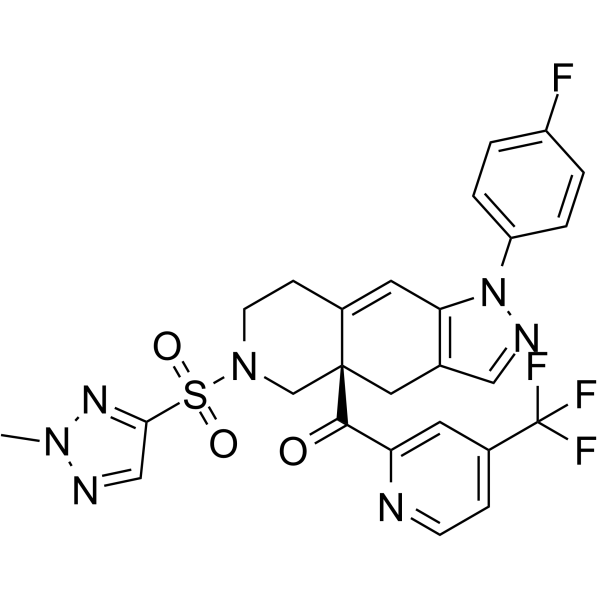1496509-78-4
| Name | Nenocorilant |
|---|
| Description | Nenocorilant (Relacorilant) is a potent, orally activity glucocorticoid receptor (GR) antagonist with Ki value of 0.15 nM. Nenocorilant has pro-apoptotic effects and improves potency combined with cytotoxic agent. Nenocorilant can be used for cancer research[1][2][3]. |
|---|---|
| Related Catalog | |
| Target |
Ki: 0.15 nM (glucocorticoid receptor)[1] |
| In Vitro | Nenocorilant (Relacorilant) (0-1000 nM; 0-72 h; OvCa cells) has pro-apoptotic effects and reverses the effects of cortisol and partially restored Paclitaxel and Gemcitabine induction of tumor-cell apoptosis[1]. Nenocorilant (Relacorilant) (100 nM; 4 h; MIA PaCa-2 and OVCAR5 cells) prevents dex-mediated upregulation of both GR target genes SGK1 and MKP1[2]. |
| In Vivo | Nenocorilant (Relacorilant) (30 mg/kg; p.o.; once every four days, for 25 d; female Balb/c nude mice) improves the efficacy and promotes apoptotic activity of cytotoxic therapy in xenograft models under physiological cortisol conditions[1]. Animal Model: Female Balb/c nude mice[1] Dosage: 30 mg/kg Administration: Oral administration; once every four days, for 25 days Result: Inhibited tumor growth and increased the expression level of caspase 3. |
| References |
[3]. WHO Drug Information. International Nonproprietary Names for Pharmaceutical |
| Molecular Formula | C26H21F4N7O3S |
|---|---|
| Molecular Weight | 587.55 |
